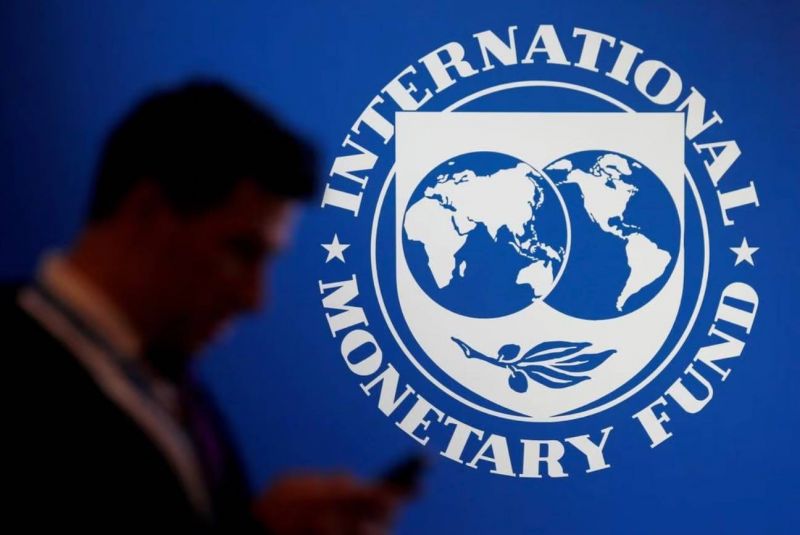
A participant stands near a logo of IMF at the International Monetary Fund - World Bank Annual Meeting 2018 in Nusa Dua, Bali, Indonesia, October 12, 2018. (Credit: REUTERS/Johannes P. Christo)
GDP growth in the Middle East and North Africa region will slow to 3.1 precent in 2023, from 5.3 percent a year ago, International Monetary Fund (IMF) Middle East and Central Asia department director Jihad Azour said on Thursday.
"Growth is projected to slow this year due to tight policies to restore macroeconomic stability, agreed OPEC+ production cuts, and the fallout from the recent deterioration in global financial conditions," Azour told a press briefing.
Growth among MENA oil exporters will slow to 3.1 percent from 5.7 percent last year, with the non-hydrocarbon sector activities to be the main driver of growth, he said.
Low income countries in the region will lag, with growth forecast at 1.3 percent this year as high commodity prices, macroeconomic instability and country-specific fragilities weigh.
Several OPEC+ member states, led by Saudi Arabia, the world's top crude exporter, recently announced surprise cuts to oil production starting in May, driving up global prices and price expectations.
Azour said the latest projections reflected developments prior to the most recent cuts announcement.
"These cuts will lower growth for the GCC region, but will have a positive outcome on fiscal and external positions as higher oil prices offset the impact of lower growth," he said.
Saudi Arabia recorded GDP growth of 8.7 percent in 2022, the highest among G20 countries, as high oil prices boosted government revenues by 31 percent, leading to its first fiscal surplus in almost a decade.
Growth projections for this year are significantly lower; in January, the IMF revised its forecast downwards on the back of lower expected output to 2.6 percent.
Azour said the IMF expected the non-oil sector in Saudi Arabia to continue to grow, supported by labour market reforms, job creation, and increased activity from the development of megaprojects and investments as it moves towards economic diversification.